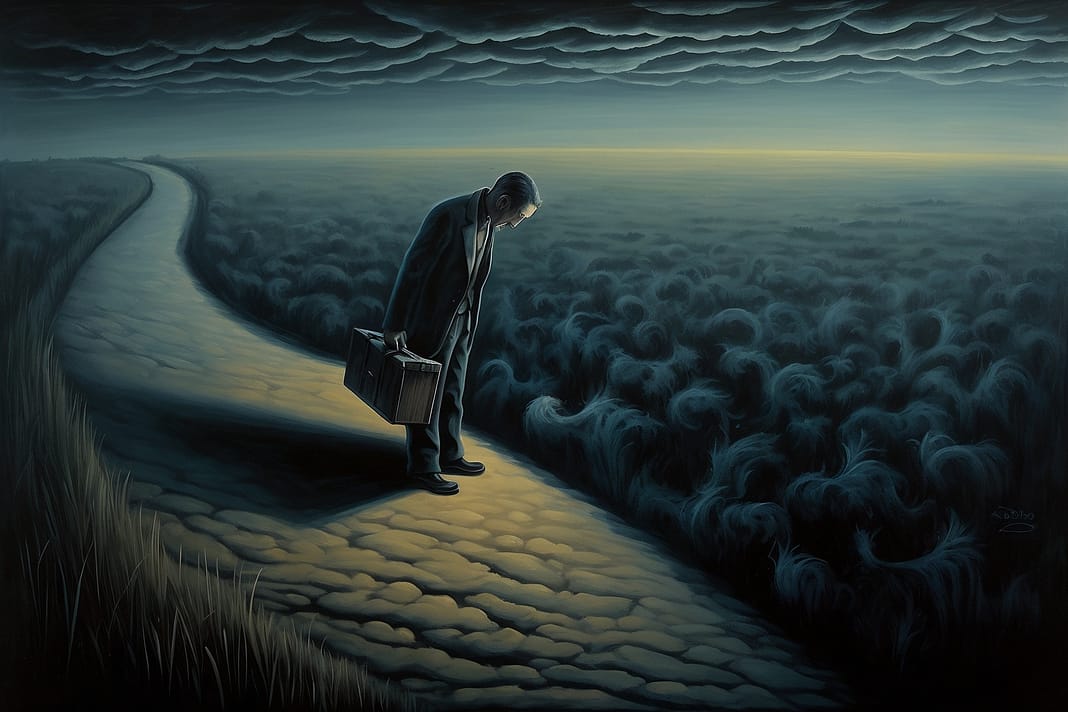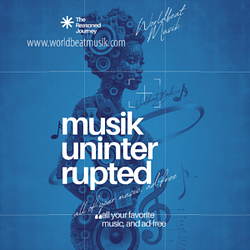There is a quiet that falls when the mind is left to its own unraveling. In the space between certainty and confusion, something ancient stirs. We have all been there—awake at night, searching for the walls of our existence, wondering if they are even real. It was in this quiet, centuries ago, that a man sat alone with his doubt, determined to strip away everything that could be questioned until only one thing remained. That man was René Descartes, and his journey from uncertainty to certainty resonates still.
To doubt is to think. And in thinking, we find ourselves face to face with our own existence. “Dubito, ergo cogito, ergo sum”—I doubt, therefore I think, therefore I am. It is more than a phrase, more than a clever twist of logic; it is the moment where Descartes met himself, the moment he recognized the flicker of being in the darkness of uncertainty.
But this is not a celebration of thought for thought’s sake. This is not the cold calculation of a philosopher locked away from the world. No, there is something more visceral, more human, in Descartes’ insistence that the very act of doubting holds within it the seed of existence. In a world where truth slips between fingers like water, the one thing he could not doubt was that he was the one doubting. We are, because we wrestle with the void.
The Loneliness of Certainty
When Descartes sat with his doubt, he felt the world collapse around him. He questioned everything—the senses, the body, the air he breathed. He even allowed himself to imagine an evil demon, a master of deception who could be bending reality itself, casting him into an illusion so deep that no sense or thought could be trusted. But even then, as the world disintegrated in his mind, something persisted. In his doubt, he found a fragile truth: I am thinking. I am doubting. I am.
What does it mean to know yourself in this way? To realize that even if the world falls away, there is a core to your being that cannot be touched? It is a strange and beautiful kind of solitude—where the only companion left is the one inside you. For Descartes, it was enough. In the flicker of his thought, he built a foundation for everything else. If he existed, then surely something more could be known.
Beyond the Cogito. The Search for God
But Descartes was not content to rest in the simplicity of the cogito. What good is existence if it floats, untethered, in a sea of doubt? He needed something more, something larger to ground his thoughts in reality. So, he turned his gaze to the idea of God—a perfect being, one that could not be doubted.
He asked himself: Where does this idea of perfection come from? It was not born from him, for he was imperfect, finite. He could not have conjured the idea of a perfect being from the depths of his flawed mind. No, such an idea must have been placed there by the perfect being itself. And so, Descartes reasoned, God must exist—because only God could plant the seed of His own perfection in the minds of flawed beings.
But is this not just another form of illusion, another trick of the mind? How can we trust that the idea of God is anything more than a shadow cast by our longing for meaning? Descartes found certainty in the belief that a benevolent God would not deceive him. But that trust in a higher power has been challenged time and again, as we wonder whether the world is as benevolent as he believed. Still, there is something haunting in his logic, something that pulls at the soul. Perhaps it is because we all need to believe in something larger than ourselves. Perhaps, in our doubt, we too search for God.
The Body and the Mind. Divided and Whole
For Descartes, the mind and body were two distinct things—res cogitans (the thinking substance) and res extensa (the extended substance). The mind was where thought occurred, where doubt lived. The body was mere extension, a vessel for the mind to navigate the physical world. But Descartes could not fully reconcile how these two interacted. How does the immaterial mind move the material body? He offered the pineal gland as a kind of bridge between the two, but this explanation was never fully satisfying.
And now, in our time, we have come to understand that the mind and body are not so easily separated. Neuroscience has revealed the deep connections between brain and body, how the mind is shaped by the physical, how thought itself is grounded in our sensory experiences. We are not souls trapped in machines; we are flesh and thought intertwined, a dance of neurons and consciousness. And yet, there is something profoundly human in Descartes’ division, something that speaks to the way we feel separated from ourselves, fragmented, lost between the body and the mind.
The Existentialists’ Cry
Centuries after Descartes, others would come to challenge his conclusions. Jean-Paul Sartre and Martin Heidegger, the existentialists, would look at Descartes’ insistence on the thinking self and say, “No, existence is not found in thought alone. It is in action, in being thrown into the world, in wrestling with life itself.” They argued that to be human is not merely to think but to exist in a world that pulls and pushes, where we are shaped by our choices and our relationships, by the sheer force of living.
Sartre rejected the idea that essence—the core of who we are—comes from thought. Instead, he believed that we are first thrown into existence, into the world, raw and unfinished, and it is through our actions, through the way we live, that we define ourselves. Existence precedes essence, he said. We are not thinking beings first; we are existing beings, becoming ourselves through every decision, every interaction, every doubt we face.
In this, there is a kind of liberation. Descartes’ certainty may offer comfort, but it can also confine. The existentialists tell us that life is more than certainty. It is in the unknown, the risk, the leap into the void. We are not fully formed; we are always becoming.
The Empiricist’s Challenge
And what of the world outside our minds? Descartes rebuilt his knowledge on the certainty of God, on the trust that his senses could be believed. But for the empiricists, knowledge does not come from reason alone. John Locke, David Hume, and George Berkeley would challenge Descartes’ rationalism, arguing that all knowledge begins with experience. The mind, they said, is not an innate source of truth, but a blank slate, written upon by the world we observe.
Hume, the great skeptic, questioned the very idea of the self. What is this “I” that Descartes clung to? Hume found no such unity, no constant, thinking self. Instead, he saw only a bundle of perceptions, ever-changing, a collection of experiences that we call “I” out of convenience but which does not truly endure. The self is not some immortal essence; it is as fleeting as the sensations that pass through it.
Where Do We Stand?
And so, here we are, centuries later, still grappling with Descartes’ doubts, still trying to make sense of what it means to exist. Perhaps the answer lies not in the certainty of thought, nor in the despair of doubt, but in the tension between them. We are, after all, thinking beings, but we are also feeling, acting, living beings.
In our doubt, we search. In our thought, we reach for certainty. But in our existence—our messy, complicated, uncertain existence—we find something deeper than the sum of our thoughts. We find ourselves. Not as fixed points in the universe, but as flickers of being, caught between the light and the dark, between doubt and certainty, between the mind and the body, between the world and the self.
It is in this tension that we live. It is in this tension that we are.
Discover more from The Reasoned Journey
Subscribe to get the latest posts sent to your email.


